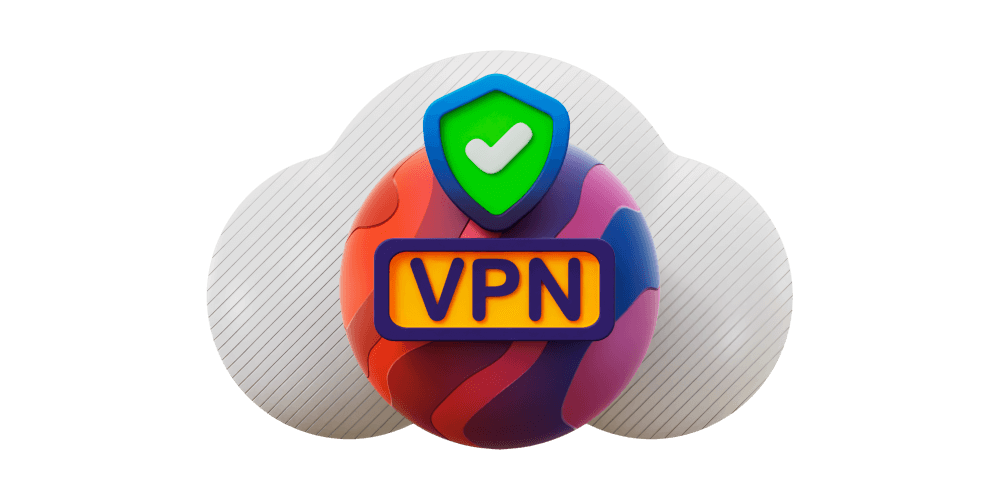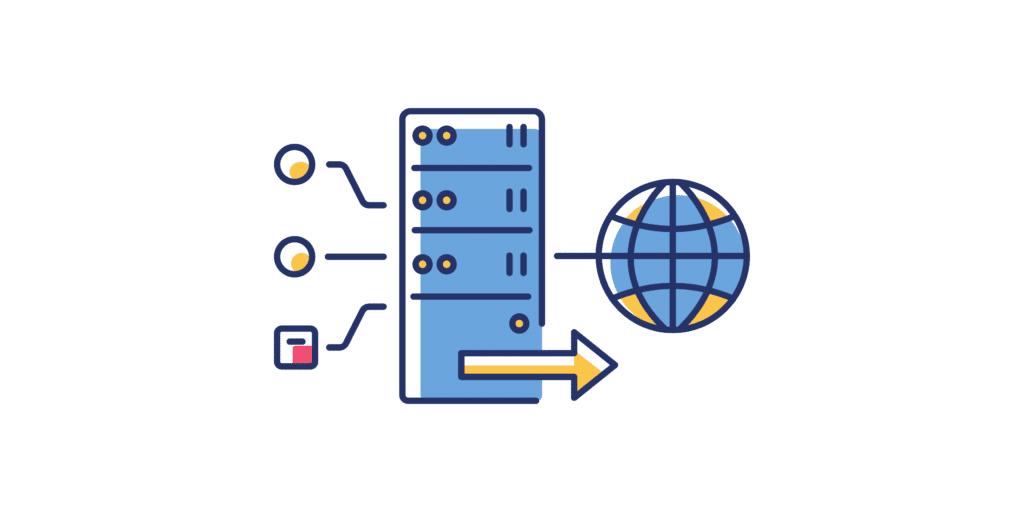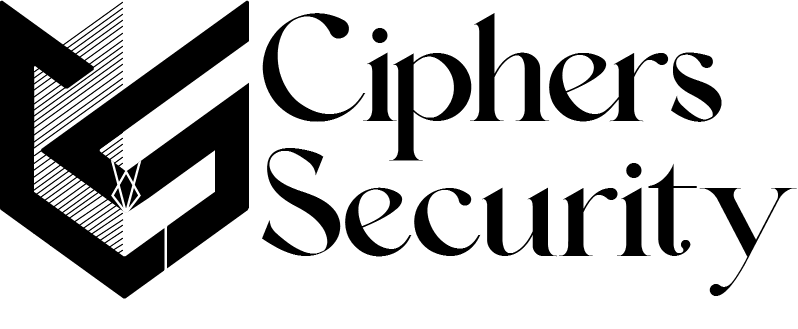hello, Lucifer here, and today we will discuss VPNs and proxies. In this article, we will discuss everything related to VPNs and proxies. Their concept, terminology, and types.
So basically both VPN and proxy are used to protect users’ online privacy and security. Both are used to bypass censorship and access blocked content of other countries in your country.
VPNs and proxies are sometimes used to protect users from the online tracking system of any server.
What is VPN?

VPN short for Virtual Private Network is used to create a private and protected connection between two network devices. after using it, it will encrypt your internet traffic and hide your online identity from everyone like your ISP, Government, etc.
It is legal and widely used by everyone in the world. All tech companies are using it for creating their private protected network on the public network.
On a VPN network, it is nearly impossible to track your online activity by anyone, but only if when your VPN is using a secure tunnel and multiple encryption. It will also help you with not being tracked by any third-party companies for advertisement and browsing data.
When you connect with a VPN your network traffic will go with a private and encrypted tunnel. Which nearly impossible to track your data inside that tunnel because there are multiple servers and multiple levels of encryption will be there.
This lets you get connected with the server computer and after then you can use the server computer for browsing over the internet. This thing will help when browsing from the VPN server computer then your IP will be private, and the server will give that VPN-server IP to the website that you are browsing.
These are also used by that types of countries where they have highly restricted governments.
Simply it will help you to get secure while browsing and using the internet over the public network.
How does it work
When you connect with a virtual protocol network server then all your network traffic/packets will be delivered to their destination via a secure and encrypted tunnel. Where no one is able to see your network data like the government, hackers, ISP, etc.
which means your data is not in readable form because of multiple layers of encryption provided by the VPN-tunnel.
Let’s understand this by seeing two situations that are with and without VPN.
Without VPN

When we browse the internet without a VPN then we are to connect with that website server with the help of our ISP. ISP gives us a unique IP address for accessing different things over the internet. And ISP is responsible for handling all of our internet traffic and that’s why our ISP is able to know our browsing history at any time.
So, here our network privacy is compromised by our ISP but this is just a known fact. As per the internet policy, no ISP have permission to see their user browsing data. but what if someone else rather than our ISP is able to see it then at that time our privacy is compromised?
But every government has full authority to ask for someone’s internet use history by their ISP. The ISP will have to provide that data to the government. So, here also our privacy is compromised with many things.
So, by this thing, our privacy will be compromised in many aspects in terms of without a VPN. And we can not able to access any blocked website and content. Even we cannot be able to browse other countries’ streaming content.
With VPN

When we connect with it by using a vpn client on our phone or PC then the client will create a secure connection with its server situated in another location which can be another country, another city, or another locality.
Here also our internet traffic will be transferred by our ISP but here our ISP is not able to see the content and final destination of our data. the ISP is only able to see that we are connected to this VPN service that’s it.
Now onwards the website or service we are visiting over the internet by the virtual network they are getting our VPN-server IP and our personal IP is hidden from everyone over the internet.
These things are done by a secure and encrypted data transfer tunnel which is used by our VPN to process our traffic queries to their destination. Data transmitting inside a VPN tunnel is highly encrypted so no one is able to see your data packets inside the tunnel.
This is how it will save your data from being monitored by anyone like a hacker, government, ISP, etc. And by use of it, our privacy and security will be maintained over the internet on the public network too.
By the use of it, we can also able to access blocked websites and content over the internet, and we can also browse for another country’s streaming content.
Types
There are many types of VPN available in the market but their two major categories in this that are Remote Access and site-to-site VPNs later on there are more categories in these let’s see the list below:-
- Remote Access: These are the most common type of VPNs, and they allow you to connect to a remote network over the internet. Remote access virtual networks are often used by individuals to protect their online privacy and security or to access content that is restricted in their region.
- Site-to-Site: These VPNs connect two or more networks together, allowing them to communicate as if they were on the same local network. Site-to-site virtual networks are often used by businesses to connect their corporate networks to branch offices or other remote locations.
- Mobile: These VPNs are designed specifically for use on mobile devices, such as smartphones and tablets. Mobile VPNs can help protect your online privacy and security when using public Wi-Fi or cellular data networks.
- Cloud: These VPNs use cloud-based servers to provide a secure, encrypted connection between your device and the internet. Cloud VPNs can be useful for businesses that need to connect remote workers to their corporate network.
- Virtual Private LAN Service (VPLS): A VPLS is a type of VPN that uses Multiprotocol Label Switching (MPLS) to create a virtual private network over a public infrastructure. VPLs are often used by businesses to connect multiple locations together securely.
Advantages and disadvantages of it
| Advantages | Disadvantages |
|---|---|
| Security and privacy on a public network | Slow Speed |
| access blocked website | No cookies protection |
| stream any other country’s video content | Not total privacy |
What is Proxy

Proxies are the kind of network or computer server devices that acts as the middleman between the client and the internet. It works to communicate with the destination server on behalf of the client and make the client’s identity private for that server.
We use it for getting access to blocked content in a region or country. This will work as an intermediary for requests from clients seeking resources from other servers.
Like if you want to access a news website that is blocked in your region because of censored content. Then you need to access it via a proxy server.
first, you will connect to a proxy in x location. In that x location the news website is not blocked. Then you will put the request to the proxy server for that website. then its server will communicate with that website on its personalized IP which is not blocked in that x location. Then it will fetch the data and make a cached copy of it on any of its servers, and then it will give that fetched website to you.
In the whole process, your personalized IP address is kept private to that proxy server, and the fetched IP by that website is that Proxy server IP which is located in that x location.
So, by using it your identity will not be disclosed over the internet, and it will also maintain your privacy and anonymity.
Why do we need to use proxies?

As earlier, we discuss how this will maintain our privacy over the internet and also when we are accessing any blocked or censored content. There are several more reasons to use proxy-servers listed below:-
- To improve performance: It can cache frequently requested web pages, allowing clients to access them more quickly.
- To filter requests: It can block requests to certain websites or types of content, making it useful for parental control or to enforce workplace or school internet usage policies.
- To hide the identity of the client: It can mask the IP address of the client, allowing the client to access the internet anonymously and bypass censorship or other restrictions based on IP address.
- To facilitate secure communication: It can encrypt traffic between the client and the internet, providing an additional layer of security for sensitive information.
- To bypass network restrictions: It can bypass network restrictions such as firewalls, allowing the client to access the internet freely.
Types
There are several types of proxies are available in the market. But everyone chooses the proxy server which is fit best as their requirement. The several types of proxy-servers are listed below:-
- Web proxies: Web proxies are used to facilitate access to web content. They allow clients to make indirect network connections to other servers, typically for the purpose of anonymously accessing websites or hiding the IP address of the client.
- Application-level proxies: Application-level proxies, also known as “proxy servers,” are used to facilitate access to specific applications or services. They can be used to balance loads, improve performance, and filter requests.
- Network-level proxies: Network-level proxies operate at the network level, meaning they can handle all traffic for a particular network connection. They are often used to improve network performance and security.
- SOCKS proxies: SOCKS (Socket Secure) proxies are used to facilitate secure communication over a network. They can be used to bypass firewalls and proxy servers that block certain types of traffic.
- HTTP proxies: HTTP (Hypertext Transfer Protocol) proxies are used to facilitate access to web content. They can be used to cache frequently requested web pages and improve performance.
- HTTPS proxies: HTTPS (HTTP Secure) proxies are used to facilitate secure communication over a network. They can be used to encrypt traffic between the client and the internet, providing an additional layer of security for sensitive information.
Thank you for reading this post, don't forget to subscribe!


